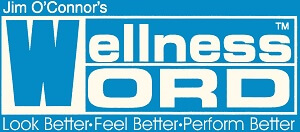Is An Ultra Low Calorie Diet The Best Way To Lose Weight
Weight loss is a common goal for many individuals, and the popularity of low-calorie diets has risen in recent years. People are constantly in search of the most effective method for shedding those extra pounds. The purpose of this article is to determine if an ultra low calorie diet is the best way to achieve weight loss.
Understanding an Ultra Low Calorie Diet
An ultra low calorie diet typically involves consuming less than 800 calories per day. This approach is often justified by the belief that rapid weight loss can be achieved by drastically reducing calorie intake. The theory is that by creating a significant calorie deficit, the body will tap into its fat stores for energy, leading to quick weight loss.
Pros of an Ultra Low Calorie Diet
One of the main advantages of an ultra low calorie diet is its effectiveness for short-term weight loss. By restricting calorie intake to such a degree, individuals can experience rapid initial weight loss. Numerous scientific studies and success stories support this claim, demonstrating the potential for significant weight reduction when following an ultra low calorie diet.
Additionally, research suggests that ultra low calorie diets may have positive effects on various health markers. Blood pressure, cholesterol levels, and insulin sensitivity have been shown to improve with the implementation of such a diet.
Another benefit of an ultra low calorie diet is its simplicity and convenience. By following a strict yet limited diet, individuals can eliminate the need for excessive meal planning and complicated food choices. This can make the diet easier to adhere to and may promote better compliance.
Furthermore, adhering to an ultra low calorie diet requires discipline and self-control. By sticking to such a restrictive calorie intake, individuals can develop a sense of commitment and learn to manage their food consumption. The act of following a strict diet can also provide motivation for individuals to continue on their weight loss journey.
Cons of an Ultra Low Calorie Diet
However, an ultra low calorie diet is not without its drawbacks. One of the main concerns is its unsustainability in the long run. Such a restrictive diet may not be feasible or healthy to maintain for an extended period of time. Constant hunger and deprivation can have negative effects on mental well-being, potentially leading to frustration, mood swings, and an unhealthy relationship with food.
Moreover, ultra low calorie diets often lack a variety of foods, which can result in nutrient deficiencies. Certain vitamins, minerals, and macronutrients might be lacking, which can impact overall health and well-being. It is important to seek professional supervision and medical guidance when embarking on such a diet to avoid potential health complications.
Another drawback is the risk of muscle loss and decreased metabolism. Very low calorie diets can cause the body to break down muscle tissue for energy, which can negatively impact metabolism and make long-term weight management more difficult.
The psychological impact of severely restricting food intake should also be considered. Constant thoughts about food, guilt associated with eating, and disordered eating patterns can emerge as a result of an ultra low calorie diet.
Lastly, weight regain is likely once individuals return to a normal calorie intake. The body's natural response to a prolonged period of limited calorie consumption is to slow down the metabolism and conserve energy. This can make it challenging to maintain weight loss in the long run.
Alternative Methods for Effective Weight Loss
While an ultra low calorie diet may yield short-term results, there are alternative methods for effective weight loss that prioritize long-term success and sustainable habits. A balanced and portion-controlled diet that includes all food groups in moderation is essential for overall health and well-being.
In addition to a healthy diet, regular physical activity is crucial for weight loss and maintenance. Engaging in regular exercise not only burns calories but also improves cardiovascular health and overall fitness.
Implementing sustainable lifestyle changes is another key factor in achieving long-term success. Rather than focusing on short-term solutions, individuals should strive to adopt habits that support healthy eating and regular exercise.
Seeking professional advice and support is vital when it comes to weight loss. Consulting a healthcare professional or a registered dietitian can provide personalized guidance and help develop a tailored weight loss plan.
In conclusion, while an ultra low calorie diet may provide short-term weight loss, it is not necessarily the best approach for everyone. It is important to consider individual goals, preferences, and overall health when deciding on a weight loss method. Prioritizing sustainable and healthy habits is key to long-term success.
Need Personalized Help Reaching Your Weight Loss And Fitness Goals?

